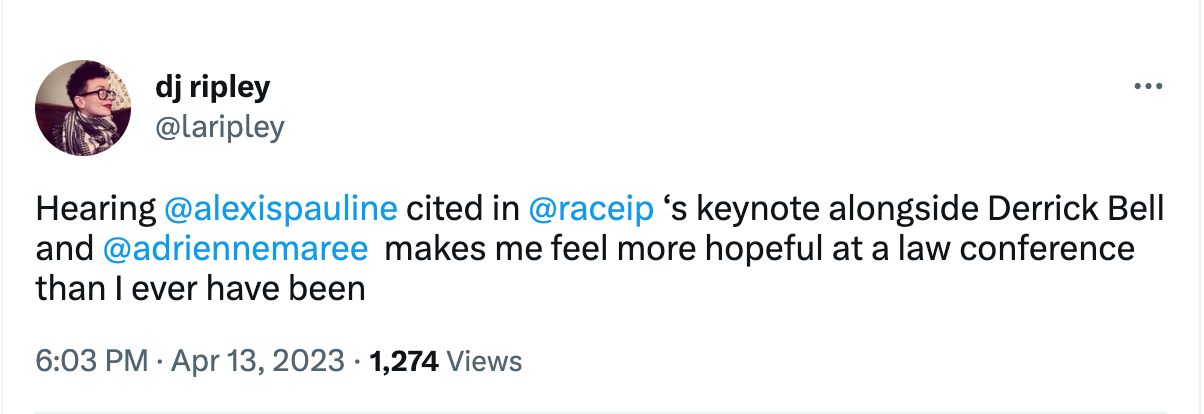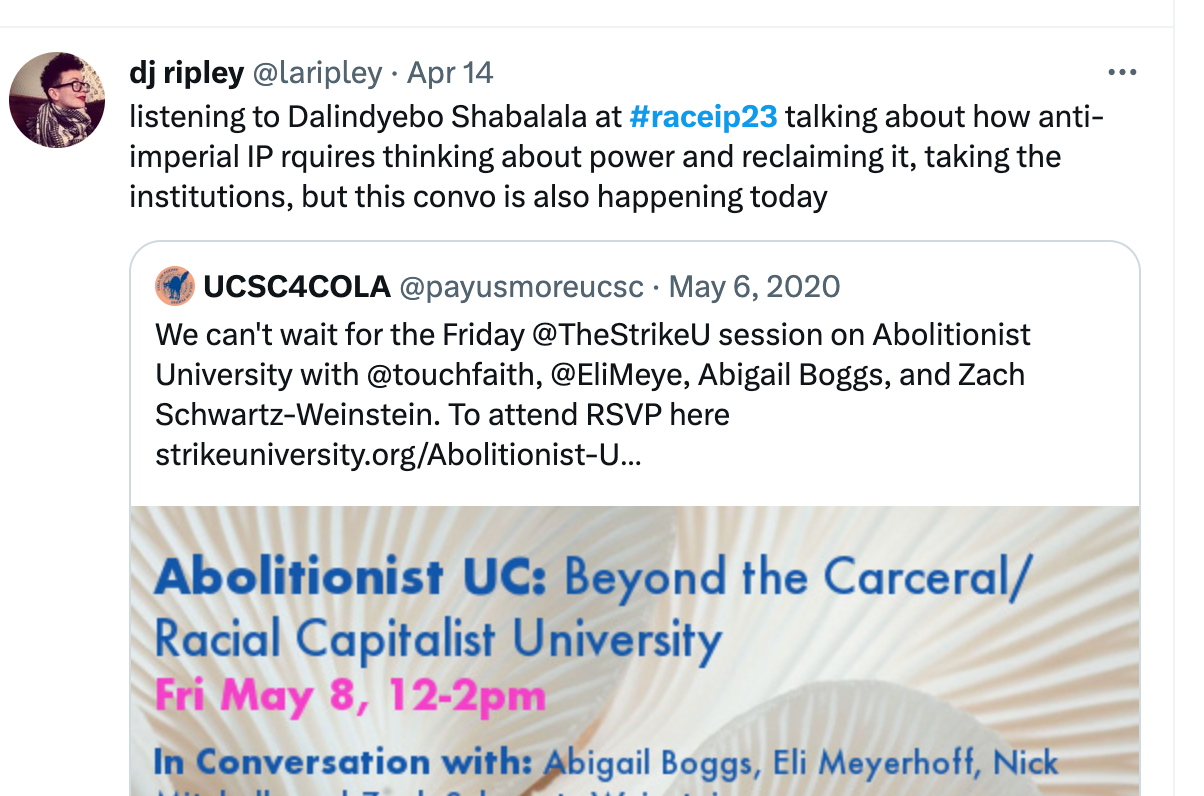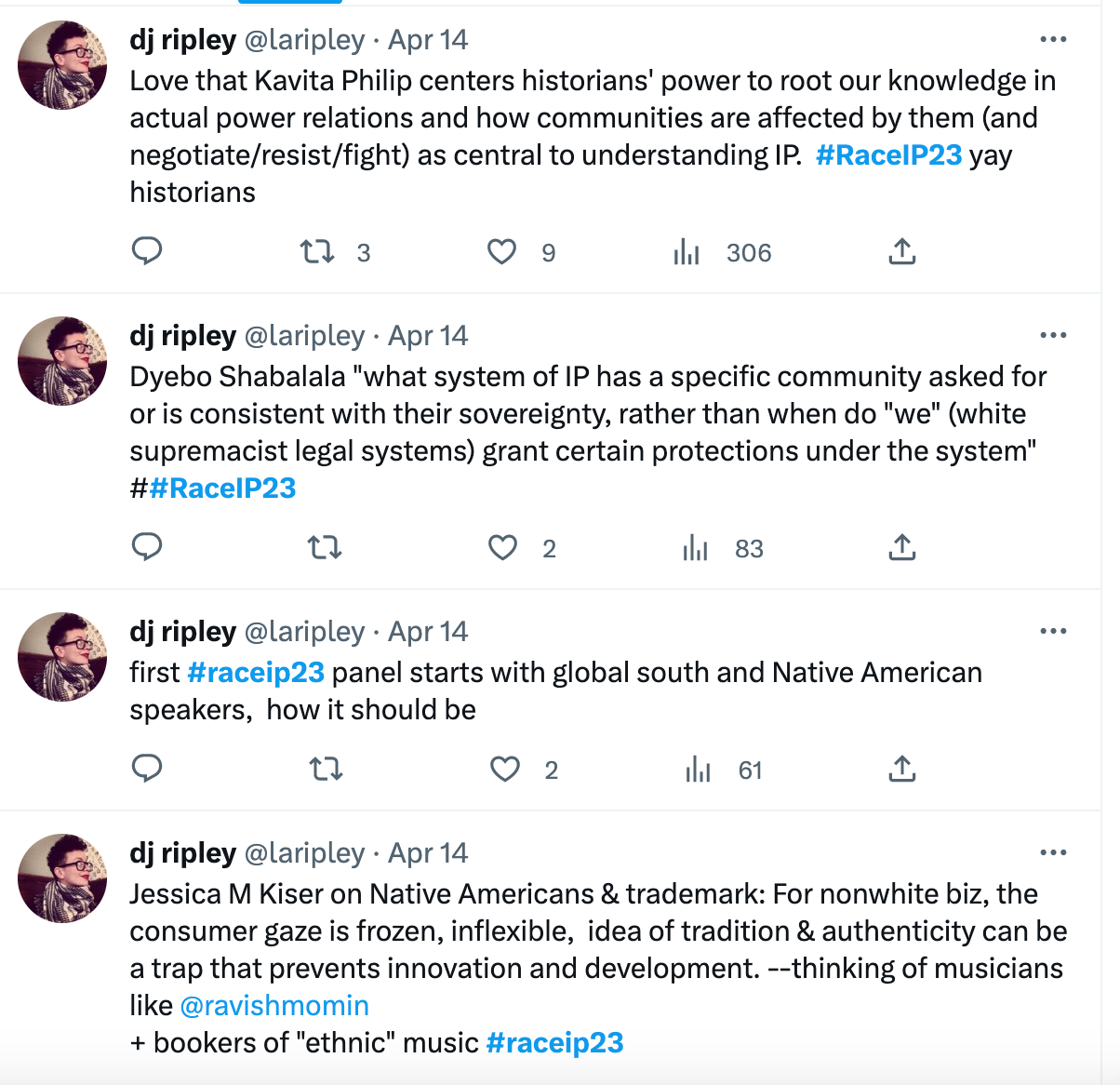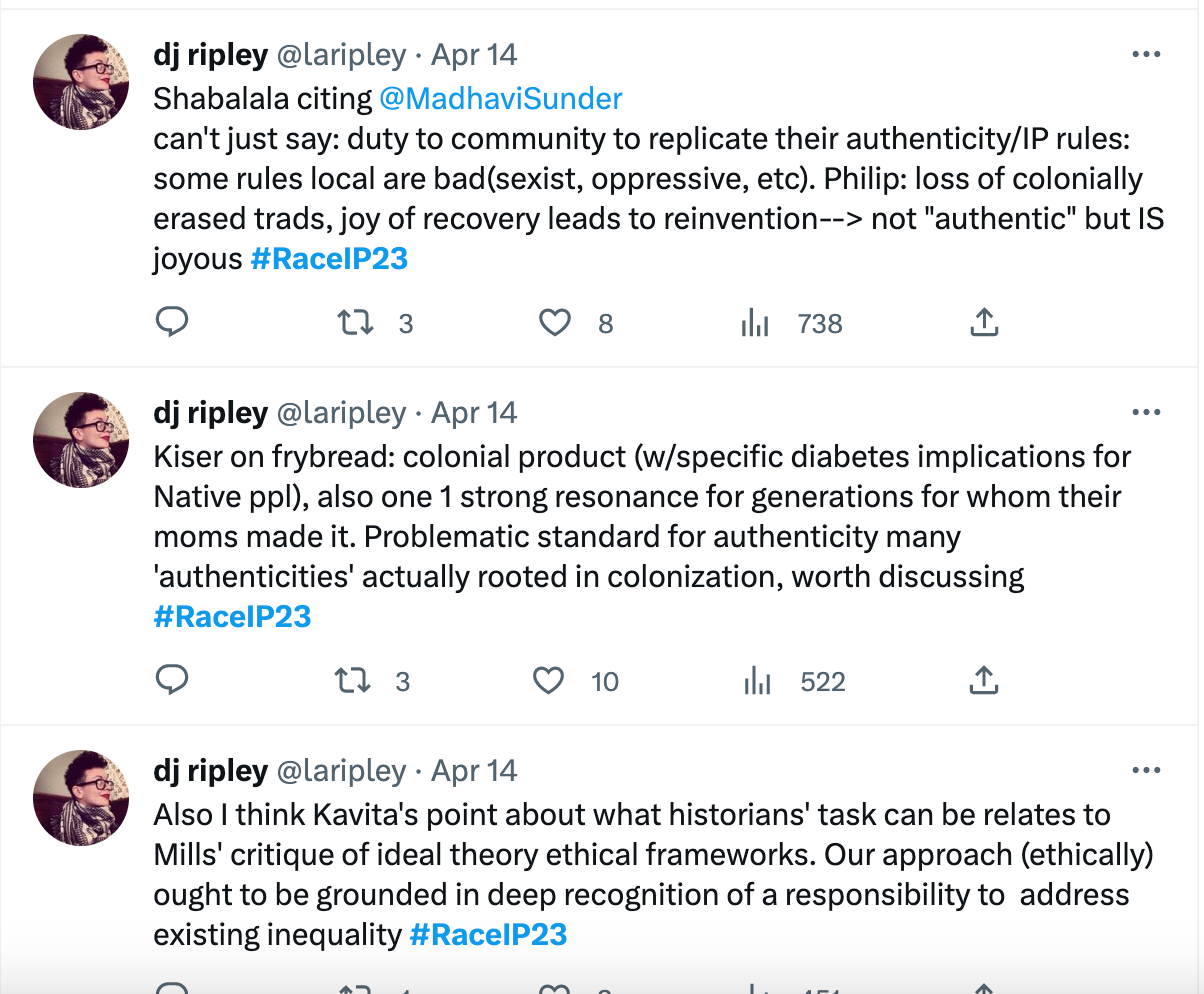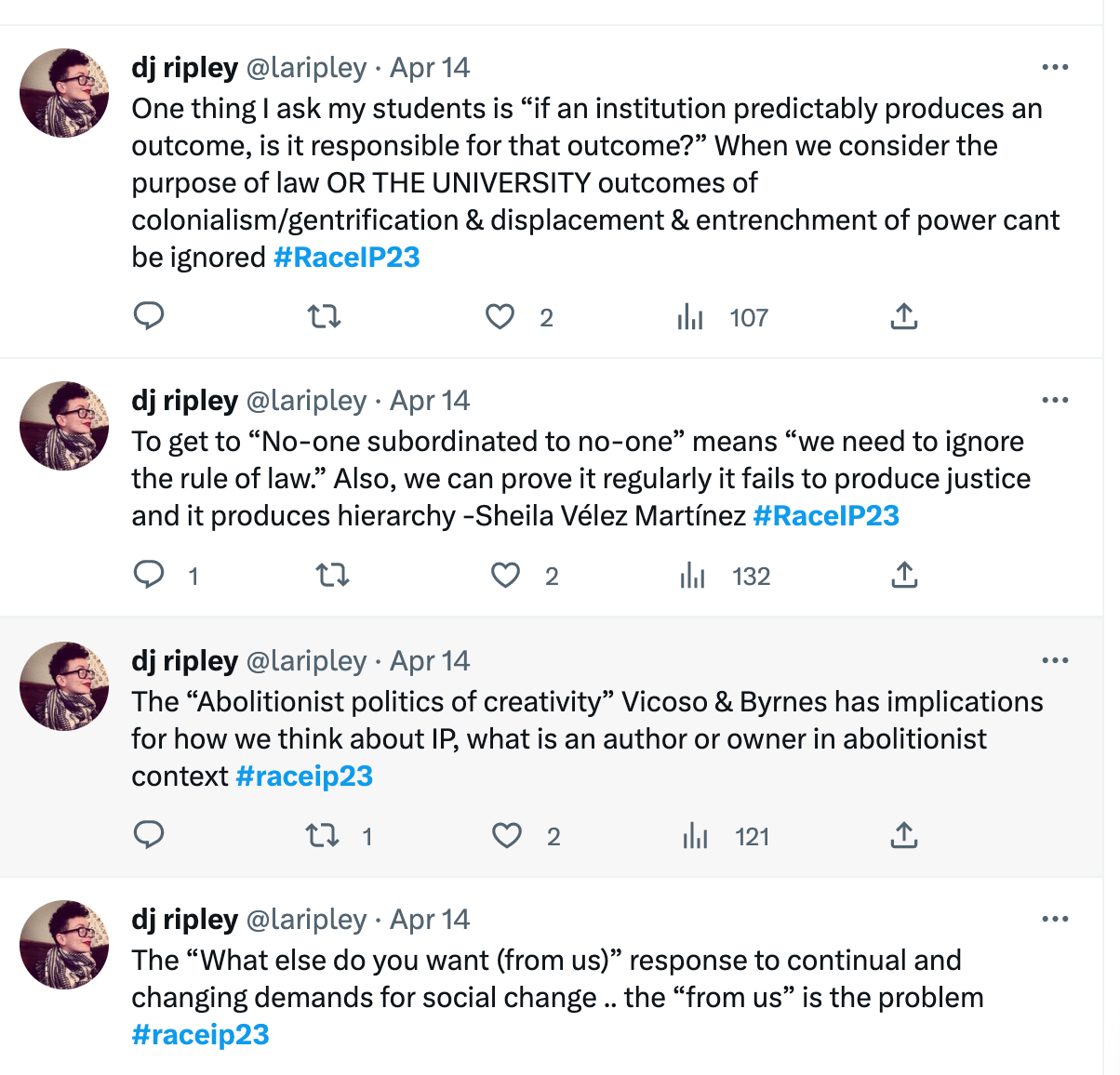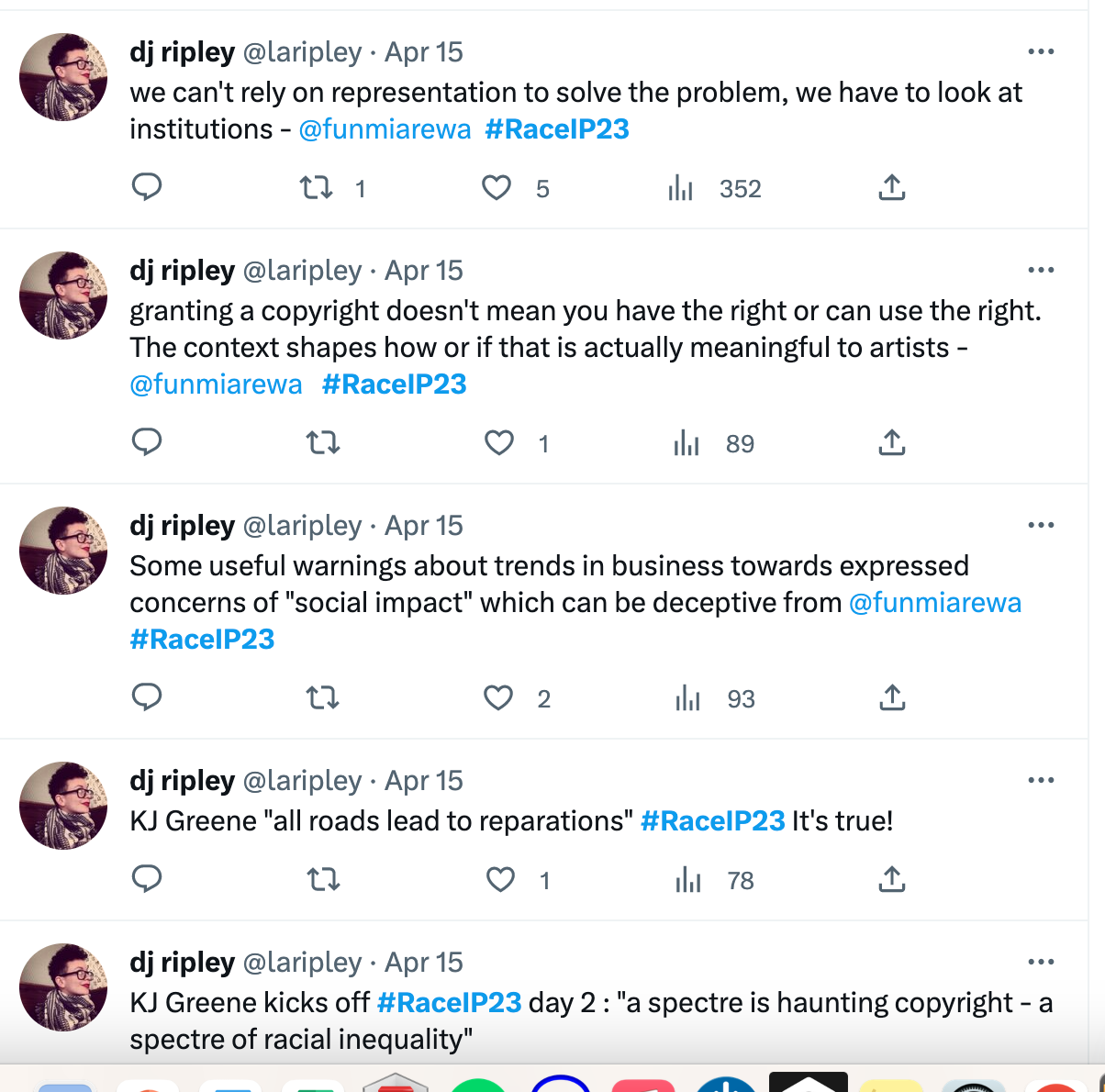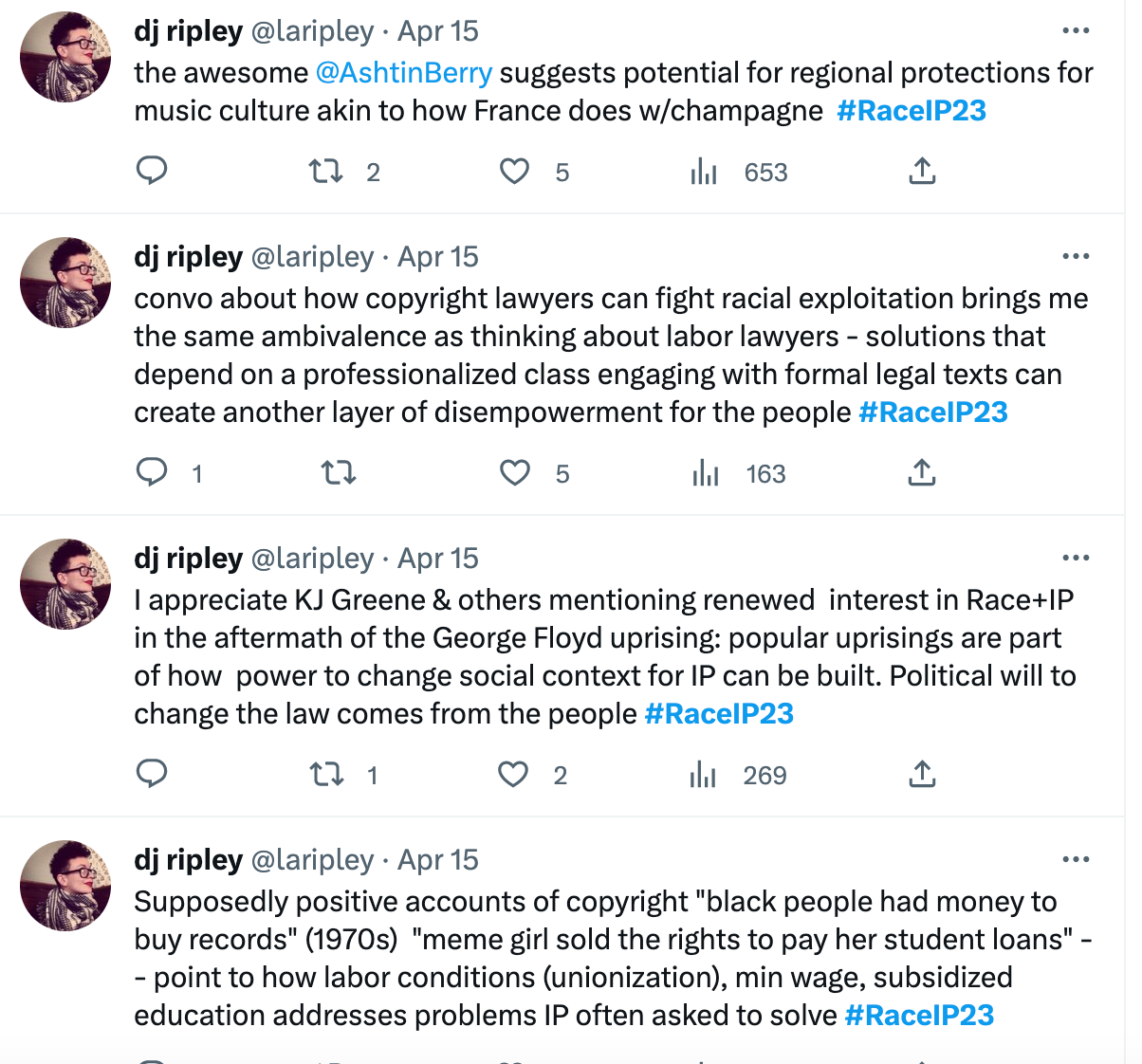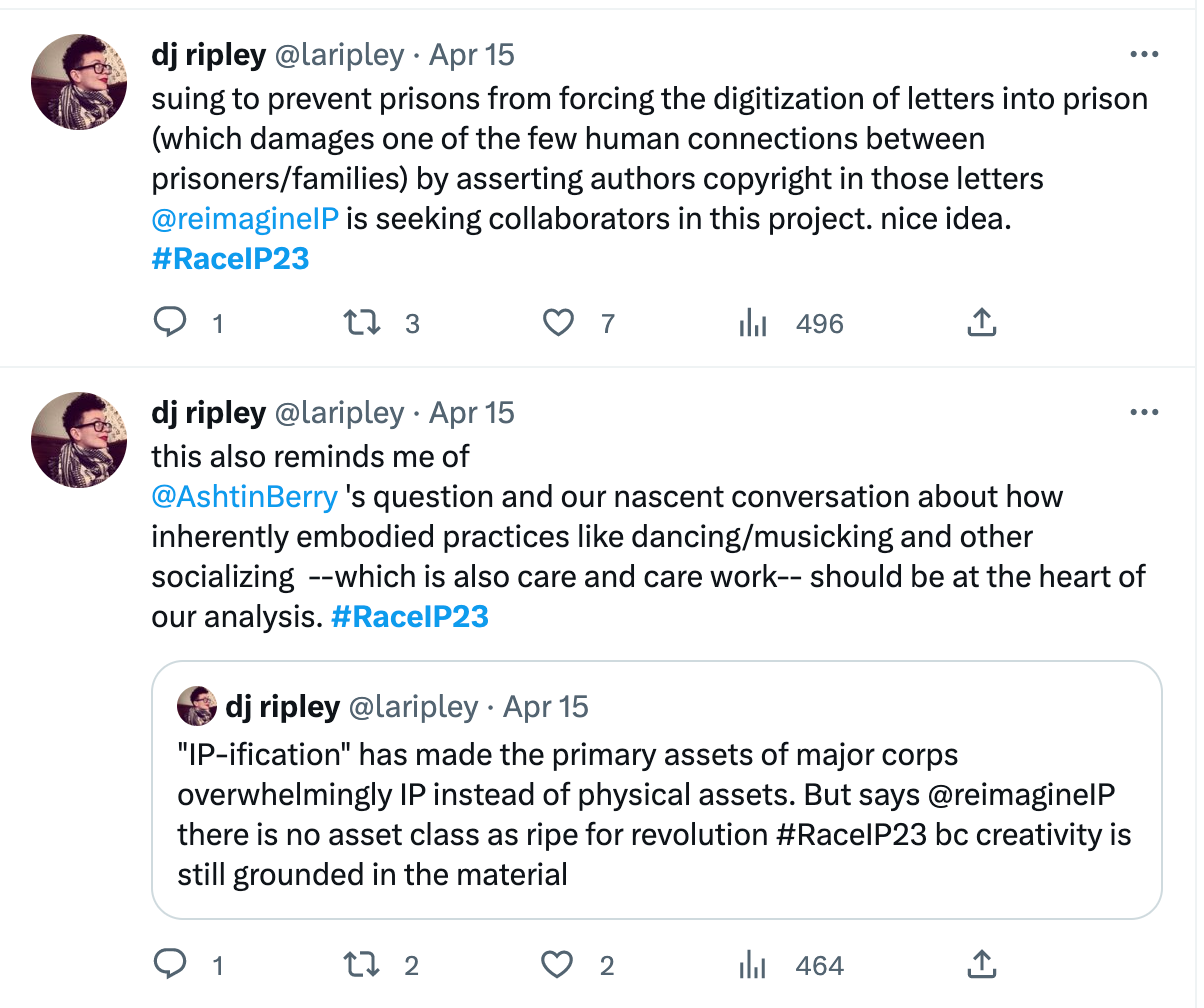I thought it might be interesting to see my attempt to livetweet the Race & Intellectual Property conference that happened last month at Pitt Law. You can see my previous post for an overview, but I did try to give some inkling of important points or interesting ideas for anyone who wasn’t there. Given that the bird-site is imploding (billionaires ruin everything), I just did some screenshots. Apologies, I will try to do text description but right now I’m gonna post screenshots with some commentary. This was a truly unusual and well-done conference from start to finish, and I hope others in academia will take note of the editorial and programming choices (not to mention the catering YUM).
This was the beginning of the event. The keynote, by Anjali Vats, was excellent and hit every point I’d hoped for, citing McKittrick, Adrienne Maree Brown,Alexis Pauline Gumbs, and Derrick Bell, alongside more familiar IP scholars and classic critical race scholars.
Also on my mind: the ways hierarchies of knowledge and bureaucracies of academia (and beyond) tend to shelter and facilitate predators, especially male sexual predators. How do we create a set of institutions and communities that don’t lend themselves to this abuse?
A nod to discussions about this happening elsewhere (the event was not the same day, although people were talking about it online the same day). How do we build something that doesn’t replicate carceral/racial capitalism?
I found so many interconnections in these discussions with conversations and great scholarship happening elsewhere! One of the things I really value about Dr Luis-Manuel Garcia’s work is the way he moves beyond simply celebrating a cultural practice into deeply investigating its significance and power. I think to take culture seriously, including dance music, we have to recognize that it includes oppression as well as liberation, exclusion as well as inclusion. He talks about these nightlife spaces as “agonistic festivities” (see his 2017 article “Agonistic festivities: urban nightlife scenes and the sociability of ‘anti-social’ fun”), places where people struggle and negotiate, as well as celebrate.
I so appreciated that there were regular and healthy checks on our own positionality and authority. Although widely varied in many ways, we were overwhelmingly scholars academics and lawyers and in general associated with a professional class. Abolition, reparations, land back, and how to undermine the colonial foundations of our own authority came up a lot! I think I put it in conversation as “how can we build things that undermine our own hierarchical claims on existing power? And how do we while we fight, leave space for and support the growth of things that will transcend us?”
As above (and to the left) there were hints —sometimes more than hints— that the struggle for justice originates outside the courtroom.. Alongside the role of uprising and riots, it made me think of arts and the things that brought so many of us to our studies, including quite a few artists/musicians.
There was so much intersection in these conversations with how I think of my role as a musician, and of the role of artists and musicians. It made me want to share music as part of the conversation, as part of an artistic practice that engages in conversation. I posted a link to the mix I did last summer for Rinse France where I also included some text from my book, a kind of experiment in speaking with and through and over and behind music.
One of the most productive conversations that was happening in the Q&A, commentary and conversation was with Ashtin Berry, who had this fantastic way of rerouting (rerooting) many of the headier discussions in questions of care and bodies, and the labor of caring people caring with and for bodies. Vibrating between New Orleans and Chicago, she reminded me of someone that of course we realized we both knew, the awesome @JMoneyRed (as seen on the bird site). The nexus of “hospitality” /// care work, musical engagement (from all directions), alcohol (aka controlled use sites)/drugs, spiritual work, sex work // are all at the heart of so many discussions of music that are reduced to “the purchase and maybe (if we’re daring) the circulation of recorded materials...
I teach “Law and ethics of digital media” almost every year, and one of the most helpful and challenging readings is Jamaican-British philosopher Charles Mill’s “Ideal Theory as Ideology” and as with all my most returned-to and disruptive/useful texts, I find things that remind me of it everywhere. I heard this common rhetorical move a few times at the conference where someone critical of a current system was asked “what would your ideal system be”? and I find that to be unhelpful… Mills explains some ways that kind of thinking is a trap.
A counterpoint to the “what’s your ideal system” was put forward by Anjali Vats (because she’s BRILLIANT) when she circulated a handout that was used by abolitionists to analyze a policy response. I wish I had it now, but basically it was identifying whether a policy response put more power and resources in the hands of the police or in the community, whether it gave more potential for harm to police or took it away. Every choice rigorously interrogated as to what it reinforced or undermined.
I ended with some direction to elsewhere these conversations are happening. Overall, so grateful, again, for this community of scholars!
